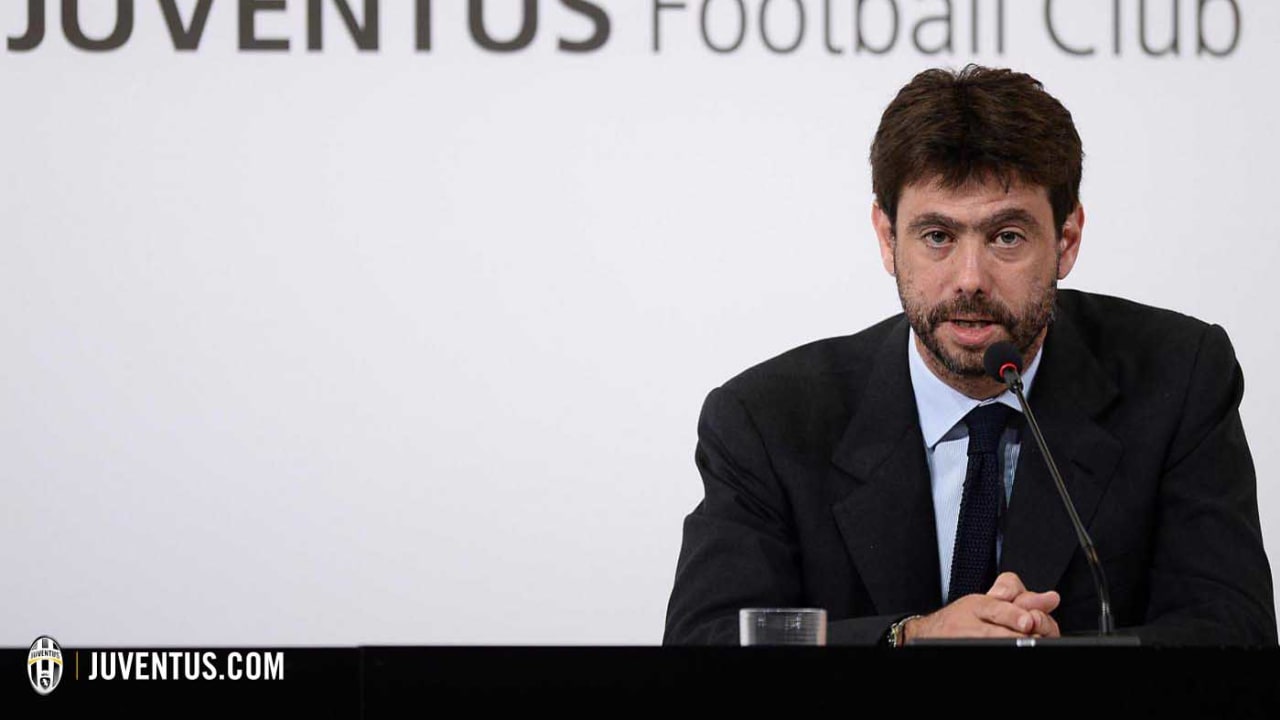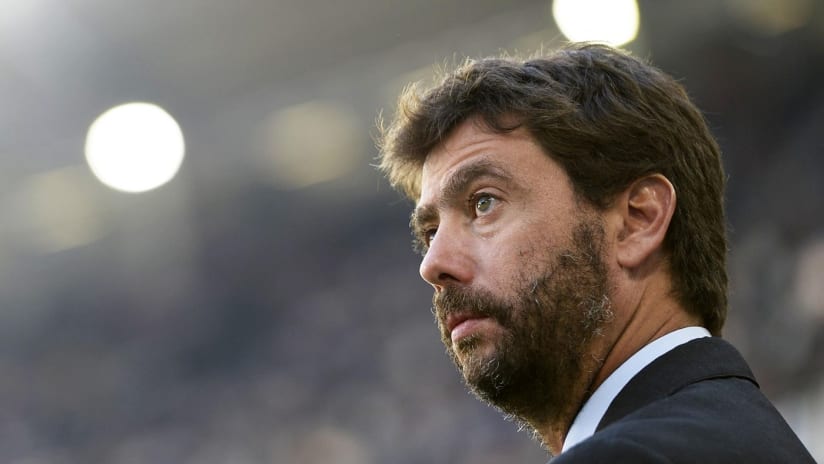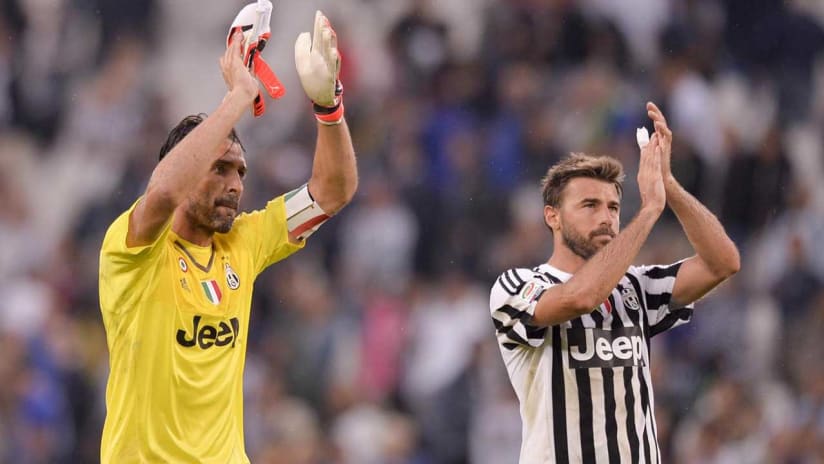01 October 2015
Dear Italian champions,
After a process which began in the summer of 2010, with a complete overhaul of the managerial staff, a financial injection to support the turnaround and correct management, your club has returned to success on the pitch and ensured economic sustainability. Four league titles, three Italian Super Cups, and steady improvement in the Champions League, from the quarter-finals in 2012/13 to the final in Berlin, with a Europa League semi-final in between. All this against a backdrop of increased revenue, which saw the club first halve its losses year on year, before recording an operating profit in 2013/14 and a net profit in the season just gone.
The management and shareholders are now faced with a new, potentially more arduous task. We have to face up to the real dilemma of every top-level football club. Only great results on the pitch – success at national and international level – bring significant revenue, be it from television, commercial deals or sporting achievement. Yet only with a balanced, diversified structure to revenue can we compete at the highest level.
The significant overhaul of the squad for the 2015/16 season, which ensures the Bianconeri remain highly competitive, along with the strategies to expand revenue by seeking global partners (such as the agreement recently started with adidas, which will put Juventus in the same international bracket – both in terms of revenue and visibility – as top clubs like Real Madrid and Bayern Munich) will allow your club to continue to develop.
The commercial strategy we have developed over the last few years will continue to contribute to maximising revenue from sponsorships and Juventus Stadium. Direct management of licensing and retail represents a great challenge, an area previously precluded by other commercial deals. A further challenge is to increase our reach to the almost 300 million Juventus supporters around the world, by expanding in digital media and e-commerce.
Juventus’ clear progress in running the club has not, however, sufficed to prompt profound, definitive reflection on the national level as to the future of Italian football. On several sides, important figures in the world of football are calling for the game in this country to be considered a fully-fledged industry which contributes to the country both via its tax revenue and its 'supply chain'. Yet sadly, Italian football has not found the human resources able to put it back at the centre of political debate. In our game, individuals who are neither important figures nor financers enjoy excessive power. It is an environment which has deceitfully 'generated' the consensus of a self-referential system. In the meantime, for the fifth time in six years, Italian teams that qualified for the preliminary rounds of the Champions League failed to reach the competition proper, and Italian clubs, despite finding themselves in a fairly healthy market position, have not been able to grow at the same pace as their European competitors. In the five-year period 2009-2014, revenue in English football grew by 61%, 46% in Germany, 32% in Spain, 42% in France, 86% in Russia and 62% in Turkey. Revenue in Italy for the same period grew by just 14%.
The hope is that the next Olympic Games, at the end of 2016, can accelerate reforms to the structure of Italian football and foster the natural change in personnel, competencies and the way the game is run. This is a process the league bodies, footballers and coaches have to grasp in order to avoid spending a further five years, between now and 2020, listing what should be done but that no one does.
Football has to go back to the heart of this world and, in the short term, in order to improve the product we offer supporters, it would be wise to tackle the following issues:
- For too long the idea of creating B teams has been rejected, while other countries have guaranteed their young players steady development. Serie A needs to have the strength to bridge the generational gap between the Primavera championship (Under-19) and potentially joining the first team, which typically occurs between 22 and 23 years old.
- Reforming the league system is imperative and must be accompanied by significant reflection on the issue of mutuality. Relegated teams must be protected so as to avoid jeopardising, as is currently the case, the business’s continuity. It is patently clear that cases such as Parma, who went bankrupt during the league season, or the continued problems many clubs are encountering in obtaining UEFA licences, undermine the credibility of the system as a whole, making it less attractive for potential new investors, who we need, provided they present clear, long-term development plans.
- The situation regarding stadia, save rare and noteworthy exceptions, is unchanged. Not only has the planning of new infrastructure stalled, existing facilities have even been granted waivers from current legislation. The introduction of Goal Line Technology – a positive move – entailed costs that all the clubs could bear without any problems. Sadly, the same cannot be said of investment in safety and the latest technology in video surveillance which, with much lower costs, would greatly assist the work of the authorities in identifying the individuals behind the offences and would clearly reduce so-called ‘objective responsibility’, which after the recent events of April’s derby at the Stadio Olimpico in Turin, I would jokingly dub ‘inherent responsibility’. Individual responsibility has now become of secondary importance and Italian football appears to have succumbed to this aberration.
In conclusion, I believe it is only right we point out that the ability to engage in dialogue and enact reform in governance does not result from the impromptu wishes of a single club. This is a consolidated trend at the European level, thanks to the institutions’ ability to plan, particularly the European Club Association (ECA), but also UEFA. The clubs joining UEFA’s Executive Committee was a historically significant event, and also proves that well-structured institutions can evolve, considering those who invest human and financial resources in football and quite legitimately want to have their voice heard. It is an honour for me to represent the 220 clubs from 53 different football associations in this dialogue, along with president Rummenigge. Over the last 12 months, the ECA has reached common ground with European football’s governing body which led to the early signing of a new Memorandum of Understanding, valid until 2022. This agreement includes greater benefits for clubs, beginning with Euro 2020, and new mutuality between the Champions and Europa League.
Similar positive dialogue has begun with FIFA, but events which have recently come to light in the global media have slowed the process for the time being.
A further demonstration of the fact that no institution can continue for too long to ignore calls for greater transparency and reform without the real risk of being overwhelmed.




